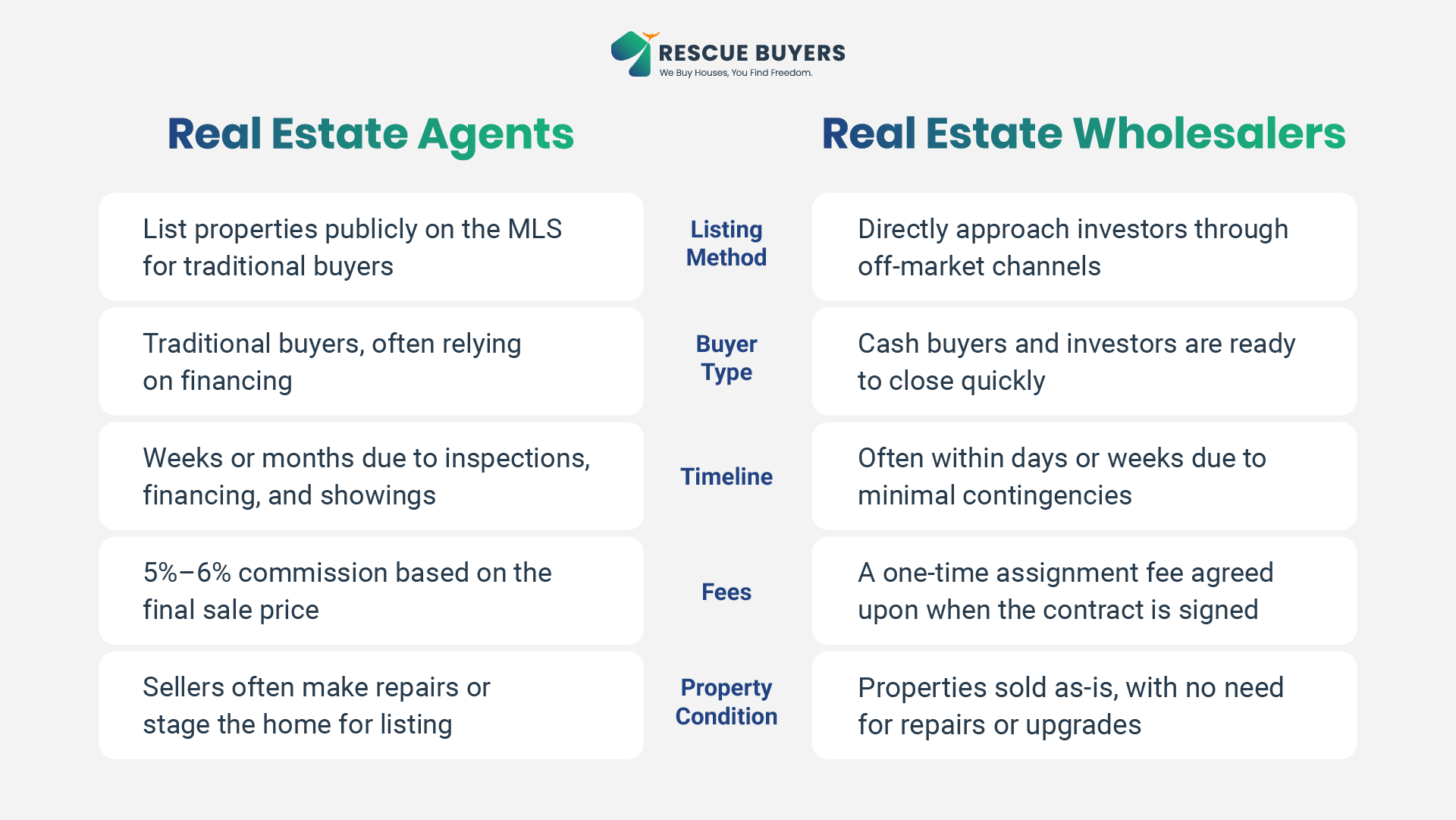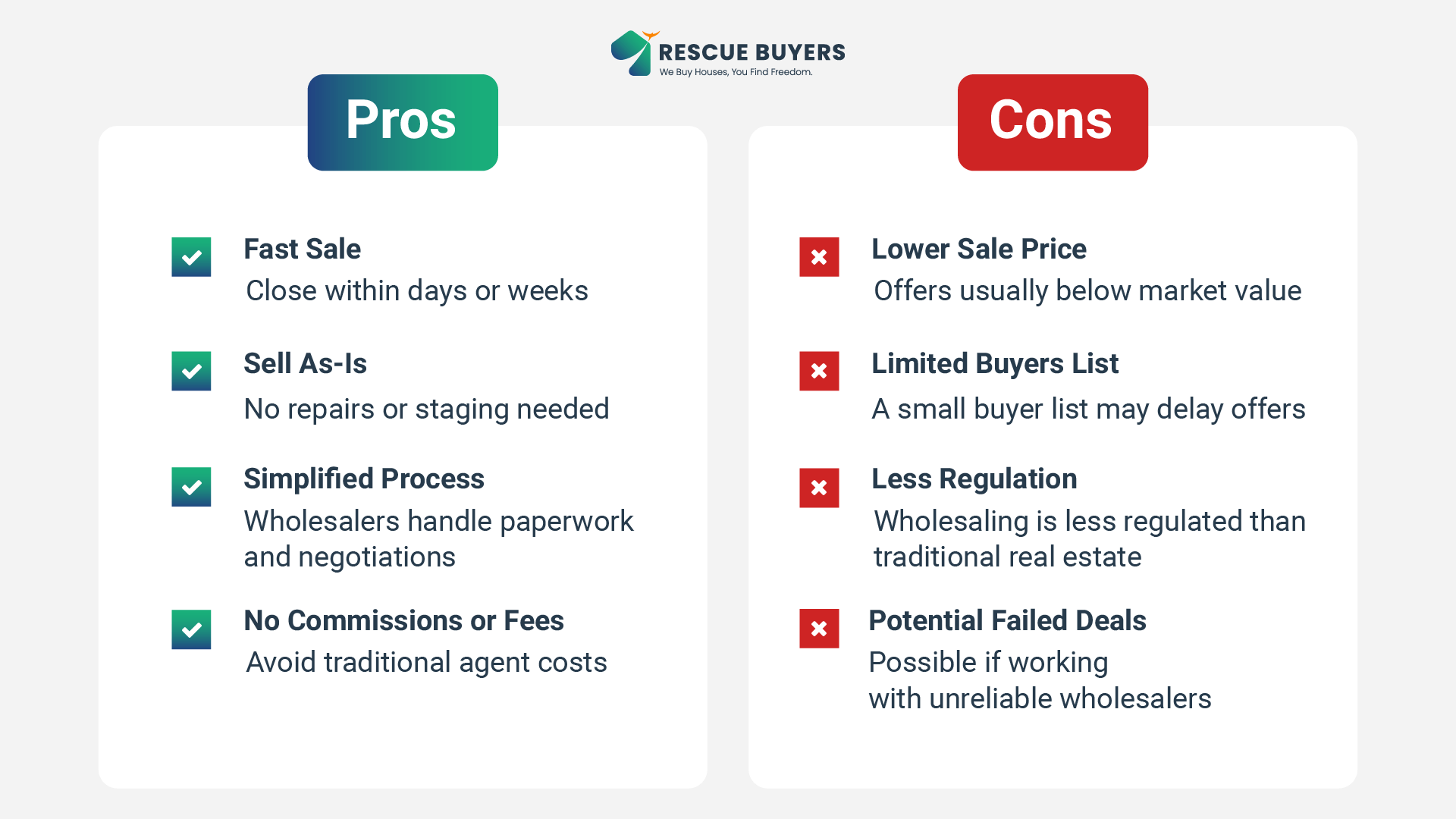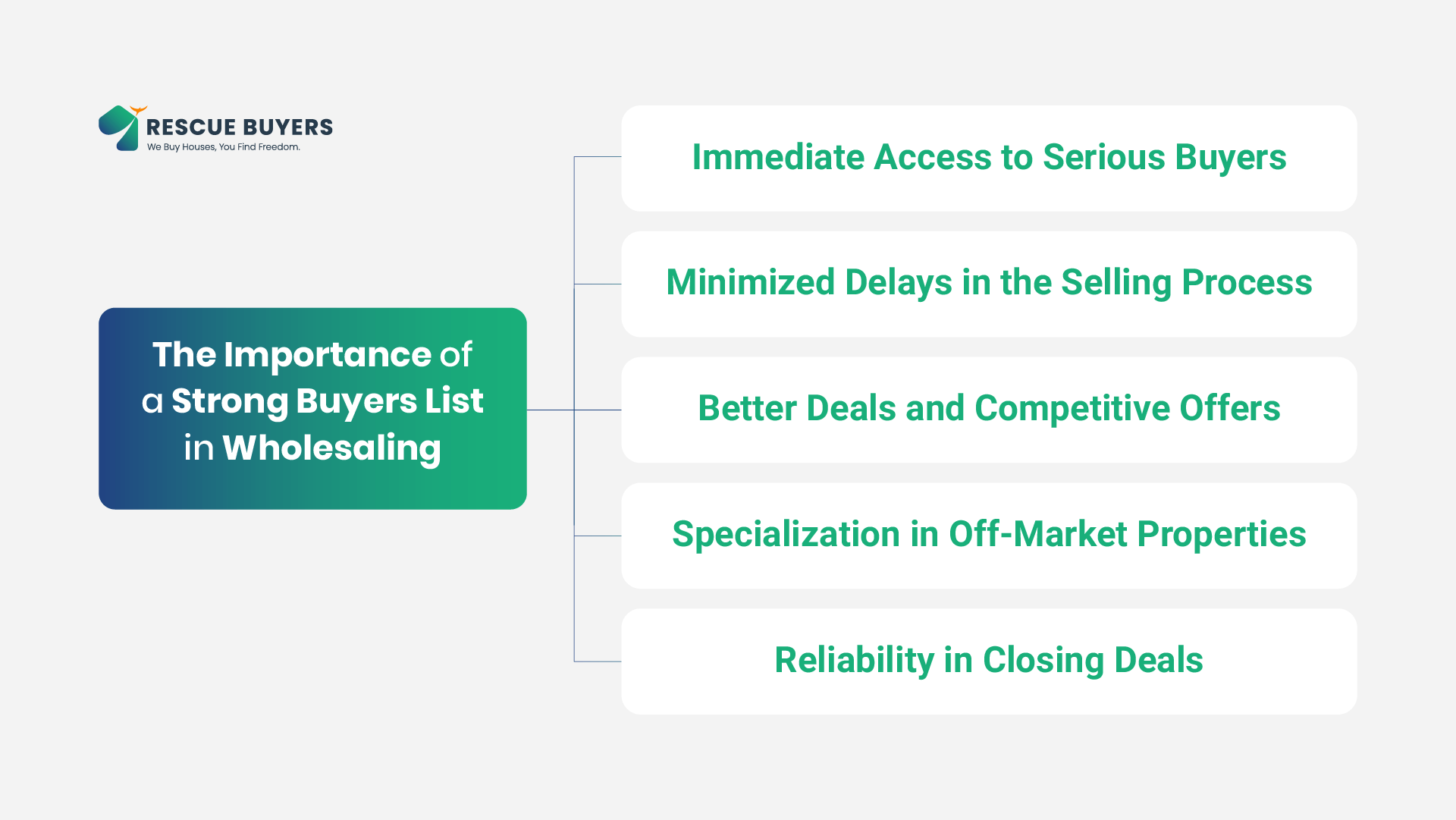What Is a Real Estate Wholesaler?
A real estate wholesaler is an intermediary who connects sellers with buyers. They don't buy your house themselves; instead, they connect you with someone who wants to buy it. Here's how it works:
- Step 1: Wholesalers enter into a contract to buy your property at an agreed-upon price.
- Step 2: Instead of buying, they find an investor or buyer willing to pay for that contract.
- Step 3: The wholesaler assigns the contract to this buyer for a fee, without ever taking ownership of the property themselves.
This process is all about speed and simplicity, especially for homes that might not fare well on the traditional market.
Example: How Wholesaling Works in Practice
Imagine you need to sell your house which you've priced at $100,000. A wholesaler agrees to this price and signs a contract. Within 14 days, they find an investor who not only agrees to the $100,000 but also pays the wholesaler a $5,000 fee for the introduction. You get your $100,000, the investor gets the house, and the wholesaler walks away with a $5,000 profit.
How Is a Real Estate Wholesaler Different from an Agent?
- Real Estate Agents: They are all about playing the long game. Agents list your property on platforms like the Multiple Listing Service (MLS), aiming for the highest possible sale price by attracting a wide audience.
- Wholesalers: Their strategy? Speed over spectacle. They deal directly with investors or cash buyers, often skipping the public listing phase, which can lead to a quicker sale but might not fetch the highest price.
Key Differences: Wholesaler vs. Real Estate Agents
- Marketing: Agents market your home; wholesalers market the deal.
- Sale Speed: Wholesalers can close in days or weeks; agents might take months.
- Buyer Pool: Agents tap into a broad market; wholesalers have a niche, investor-focused audience.

When Should You Choose a Wholesaler Over an Agent?
- Urgent Sale Needs: Facing foreclosure? Need to relocate ASAP? A wholesaler can be your ticket out.
- Distressed Properties: If your house needs significant fixes, or you're not in the mood for staging and showings, a wholesaler might take it 'as-is'.
- Avoiding Traditional Costs: Skip the agent commissions and repair costs by selling through a wholesaler.
When Is an Agent the Better Choice?
- Maximizing Market Value: If you're not in a rush and want to ensure you're getting the best possible price, an agent can market your home to its full potential.
- Appealing to Traditional Buyers: If your home is in good shape and would attract families or first-time buyers, going through an agent gives you access to a vast buyer pool.
Pros and Cons of Selling Houses to a Real Estate Wholesaler
Pros:
- Speed: Sales can close in days rather than months.
- No Repairs Needed: Wholesalers often buy properties in any condition.
- Avoid Agent Fees: You won't have to pay a real estate commission.
Cons:
- Lower Sale Price: The convenience and speed come at a cost; you might get less money.
- Limited Buyers: Your house only goes to the wholesaler's list, not the open market.

How to Choose a Reliable Real Estate Wholesaler
- Check Their Reputation: Look for reviews or ask for references. A good wholesaler will have a track record.
- Verify Their Buyers List: A large, active list means they can move your property quickly.
- Request Transparency: Make sure they explain the process and terms clearly.
- Understand the Contract: Ask questions about the assignment fee and any clauses that might affect you.
The Importance of a Strong Buyers List in Wholesaling
A strong buyers list is one of the defining features that sets a successful real estate wholesaler apart from others. It’s more than just a collection of contacts—it’s the backbone of their ability to close deals quickly and efficiently.

- Immediate Access to Serious Buyers: No waiting for loan approvals; these investors are ready with cash.
- Minimized Delays: Skipping the open market means fewer steps to sale.
- Better Deals: A diverse buyer pool can mean better, faster offers.
- Specialization: They can quickly match your property with the right investor, even if it's off-market or distressed.
- Reliability: Investors on this list are usually seasoned, reducing the risk of deal fall-throughs.
Alternatives to Selling to a Wholesaler
If wholesaling doesn't sound appealing, you have other options:
- Sell Through a Real Estate Agent: List your home on the Multiple Listing Service (MLS) and attract traditional buyers.
- Sell to a Cash Buyer: Companies that buy homes for cash can also offer speed without the wholesaler middleman.
- List As-Is: You can still go on the open market, targeting investors directly but with a broader pool of potential buyers.
Is Wholesaling Right for You?
Deciding to sell to a wholesaler isn't a one-size-fits-all solution. It's about weighing the urgency of your situation against the financial outcome you desire. If speed, convenience, and avoiding repairs are your priorities, a wholesaler might be the way to go. However, if you're looking to maximize your return on investment and can afford to wait, traditional methods might serve you better. Whichever path you choose, ensure you're making an informed decision, perhaps with the help of a real estate consultant or lawyer.
If you’re considering a hassle-free sale with a trusted local wholesaler, Rescue Buyers can provide a transparent and efficient process tailored to your needs.
Frequently Asked Questions (FAQs) About Real Estate Wholesalers
Q: Will a real estate wholesaler give me a lowball offer?
A: Reputable wholesalers offer fair prices, factoring in the property’s as-is condition, repairs, and investor profit margins. In return, you get a quick sale without repair costs or agent fees.
Q: Is wholesaling illegal or risky?
A: Wholesaling is legal when contracts are properly structured and transparent. Issues arise only when wholesalers misrepresent their role or don’t follow regulations. Choosing an experienced wholesaler ensures compliance.
Q: Are all real estate wholesalers the same?
A: No. Reputable wholesalers have a large buyers list, strong market knowledge, and clear communication. Experienced wholesalers can close deals faster and handle any obstacles smoothly.
Q: How do real estate wholesalers make money?
A: Wholesalers earn money through an assignment fee, which is the difference between the seller’s contract price and the amount paid by the buyer. This fee is agreed upon before the deal closes.
Q: What types of properties do real estate wholesalers buy?
A: Wholesalers typically buy distressed, as-is, or off-market properties, including homes needing repairs, inherited homes, foreclosures, and properties that may not qualify for traditional financing.
Q: Do I have to pay any fees when selling to a real estate wholesaler?
A: Typically, you don’t pay commissions or hidden fees. The wholesaler’s earnings come from the assignment fee paid by the end buyer, making it a cost-effective option for sellers.
Q: Can I sell my property to a wholesaler if it has liens or title issues?
A: Yes, many wholesalers work with properties that have liens, back taxes, or title issues. In some cases, they help resolve the problem before closing.
